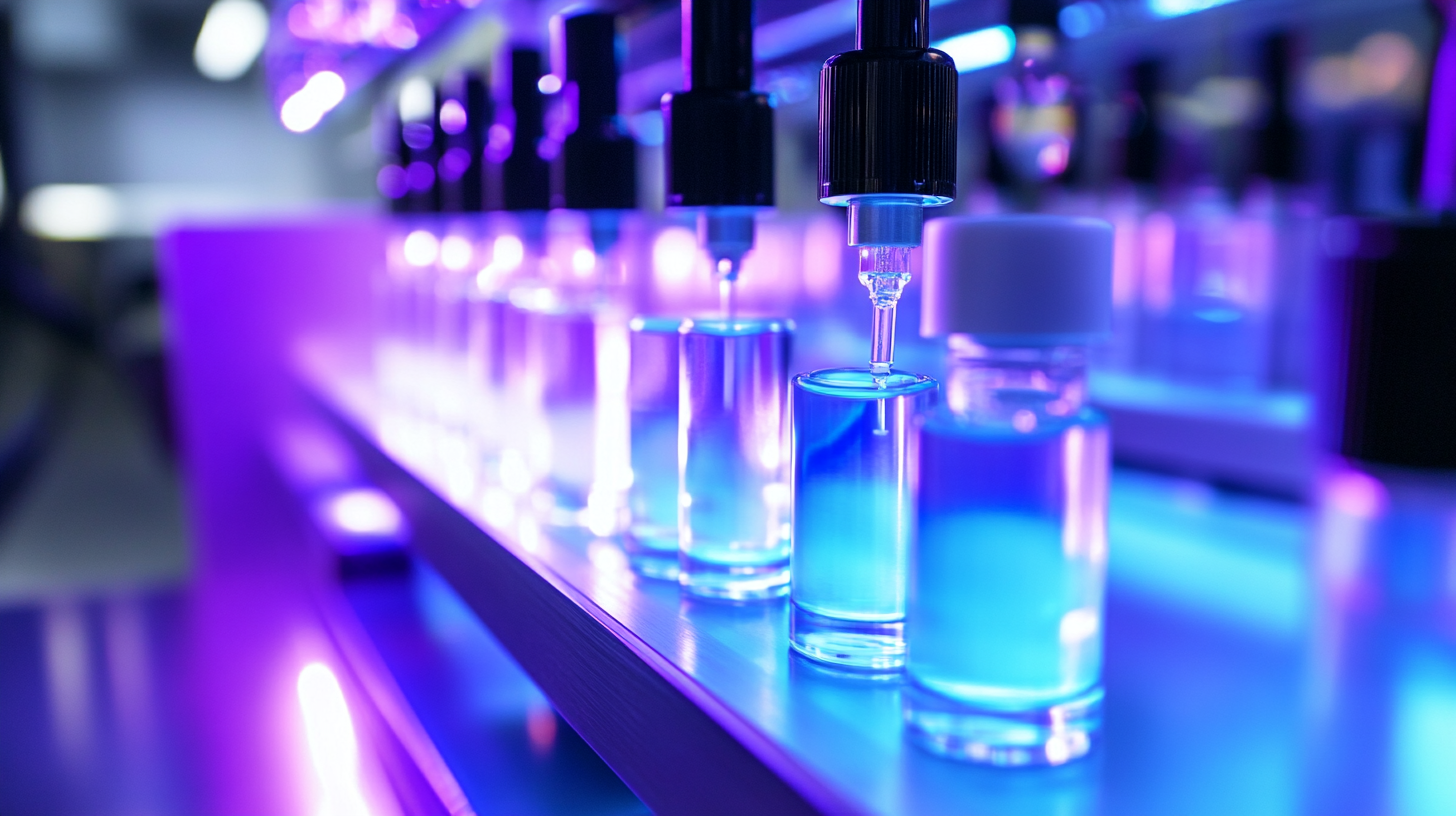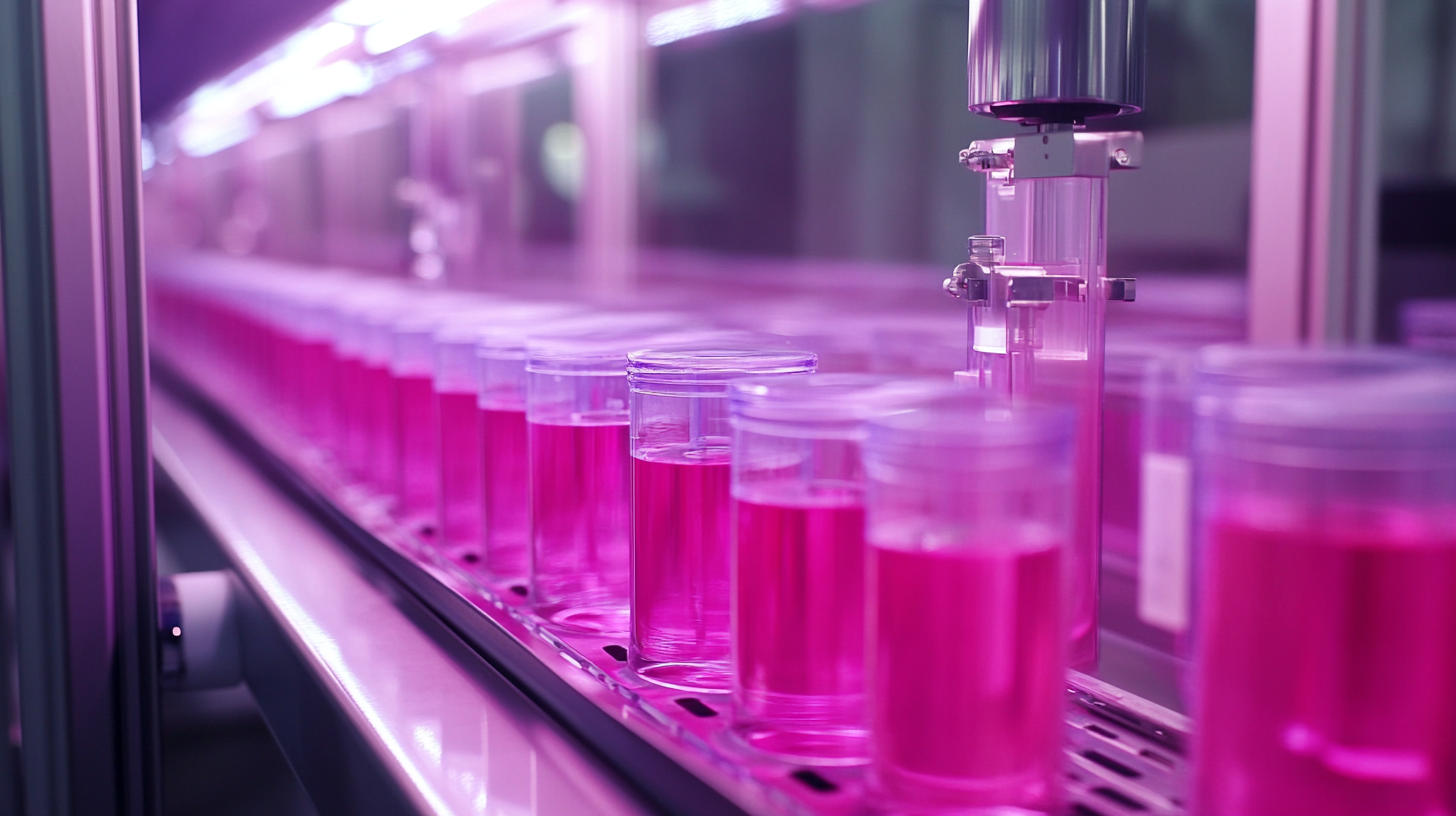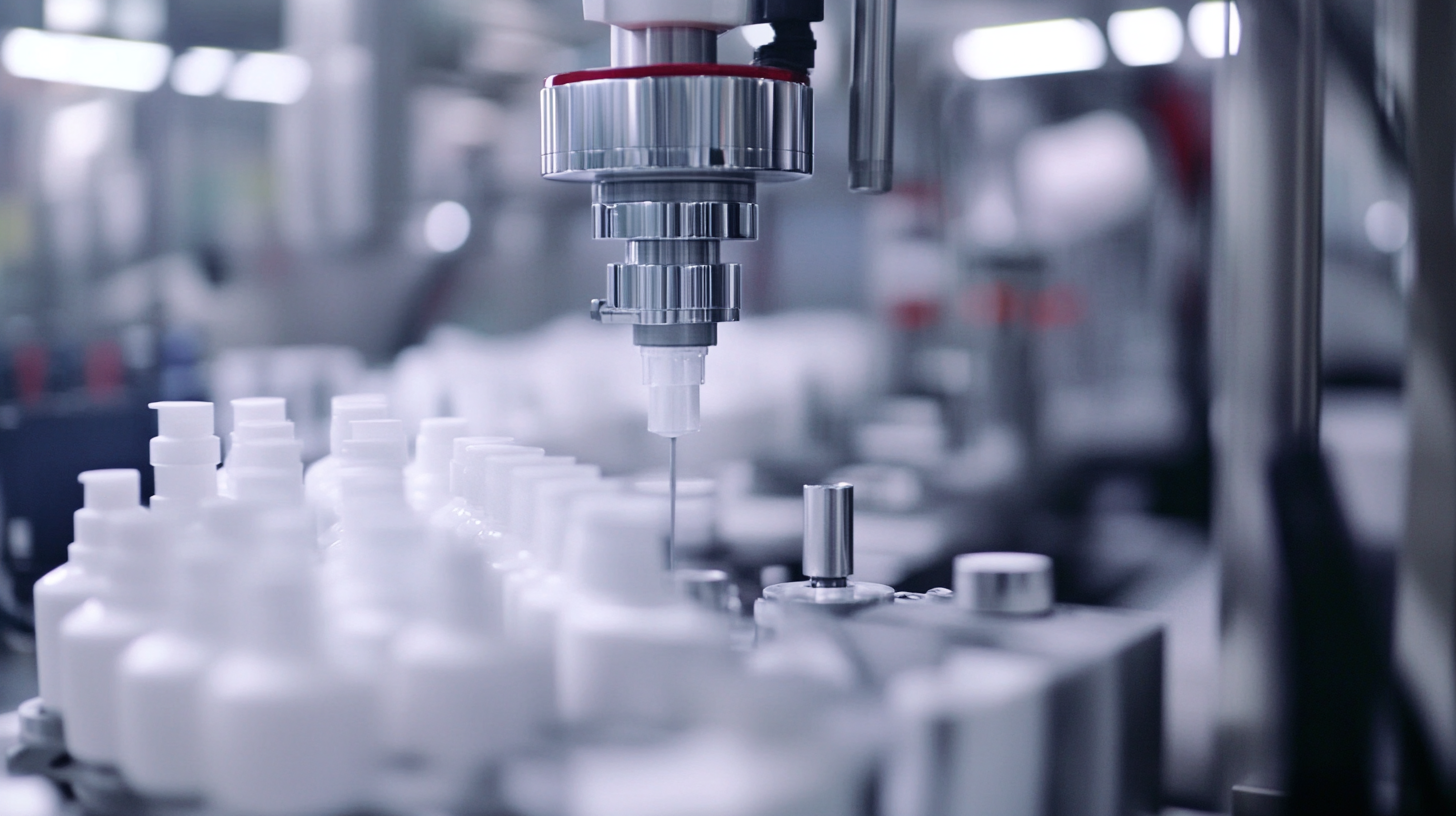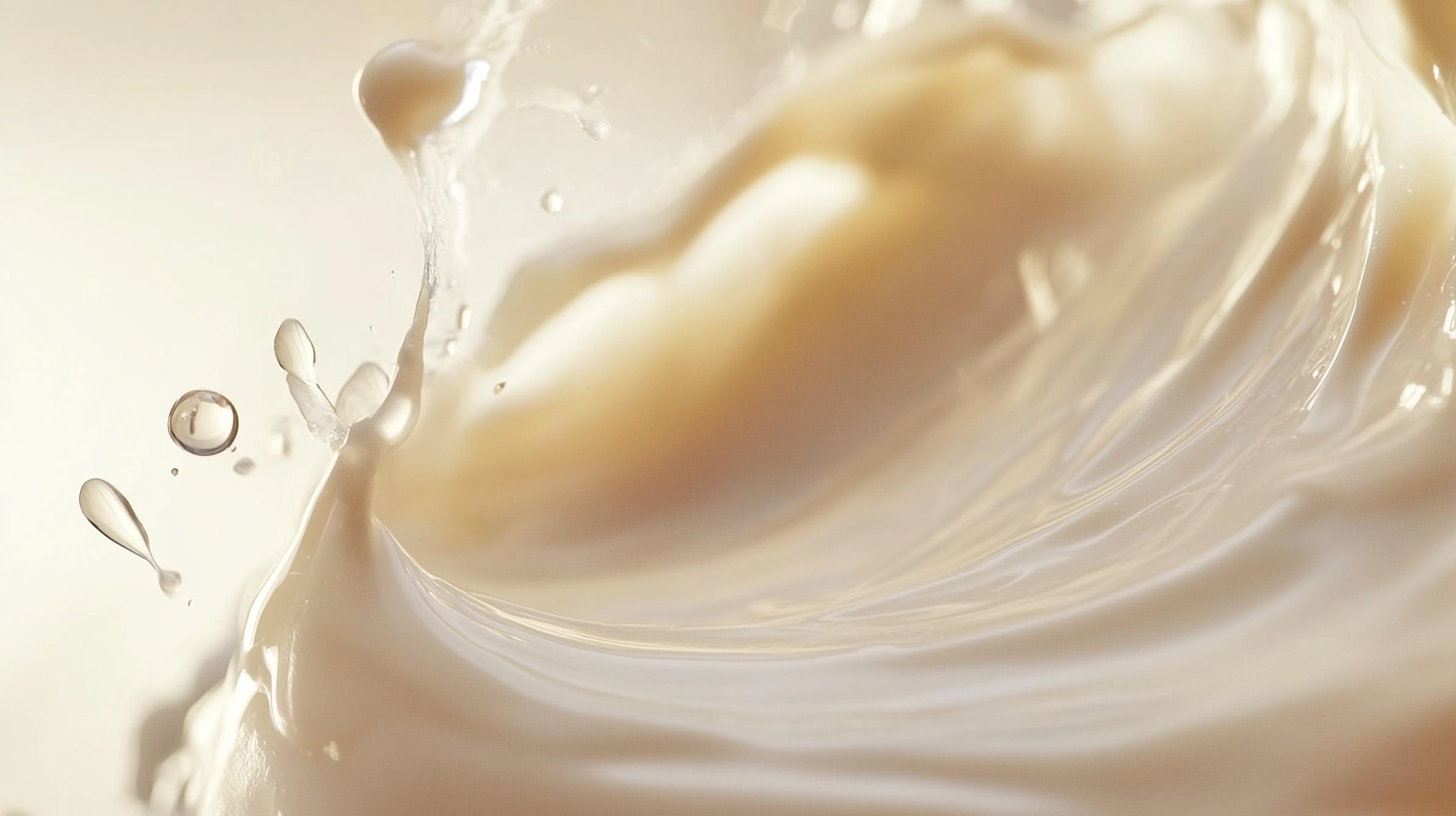In the dynamic landscape of the beauty industry, innovation plays a pivotal role in meeting consumer demands for efficiency, sustainability, and product variety. One crucial element driving this transformation is the advent of sophisticated Lotion Filling Machines. According to a report by Grand View Research, the global cosmetic packaging market is projected to reach USD 38.87 billion by 2025, highlighting the increasing importance of packaging technology in product differentiation. As brands strive to enhance their operational capabilities while minimizing waste, the focus on advanced filling machinery becomes clearer than ever.
Moreover, the global demand for lotions and personal care products is anticipated to rise significantly, with a projected CAGR of 4.9% from 2023 to 2030 as noted in a recent market analysis published by Market Research Future. This surge necessitates the implementation of innovative Lotion Filling Machines that not only optimize production efficiency but also enhance the user experience through precision and customization. By examining the latest trends in lotion filling technology, we can uncover how these machines are reshaping not only production lines but also the overall consumer engagement within the beauty market.

As the beauty industry continues to evolve, the integration of advanced automation technologies in lotion filling processes has become a game changer. Recent industry reports indicate that the beauty and personal care market is projected to reach $630 billion by 2025, with a significant portion attributed to lotions and creams. This growing demand has spurred innovations in filling machine technology designed to improve efficiency and reduce production times. One notable trend is the use of AI-powered filling machines that can automatically adjust to different viscosities and product types, ensuring optimal filling conditions. For instance, a study by the International Society for Automation highlights that automating the filling process can reduce material waste by up to 30%, significantly lowering production costs and enhancing sustainability efforts. Furthermore, the introduction of smart sensors allows real-time monitoring of the filling process, ensuring consistent quality control and reducing the likelihood of contamination. Additionally, advancements in robotic technology have led to fully automated lotion filling systems, which operate alongside other packaging processes. According to a recent report by Grand View Research, the global automated packaging market is expected to grow at a CAGR of 14.8% from 2022 to 2030. This growth reflects the increasing need for efficiency and speed in production lines, allowing beauty brands to respond rapidly to market trends. By embracing these emerging technologies, companies can not only enhance their operational capabilities but also improve overall product quality and consumer satisfaction.

Sustainable practices in lotion filling equipment design are increasingly crucial in reshaping the beauty industry. As manufacturers and consumers alike become more aware of the impacts of plastic pollution, innovative solutions are emerging to address these challenges head-on. By reducing reliance on virgin plastics and embracing materials that can be easily recycled or composted, companies are paving the way towards a circular economy.
In recent years, the evolution of packaging technologies has led to the development of compostable packaging options and advanced lotion filling machines that prioritize sustainability. These innovations not only help in minimizing waste but also align with consumer expectations for eco-friendly products. For instance, some companies are now adopting plant-based materials that can decompose, significantly reducing the environmental footprint of their products. The rise of this trend signals a pivotal change in how beauty products are packaged and presented, focusing on sustainability without compromising on quality or efficacy.
Moreover, key industry players are capitalizing on advancements in tube filling machines that enhance the efficiency of filling processes while utilizing sustainable materials. This integration ensures that businesses remain competitive while adhering to new eco-conscious standards. The collaboration among manufacturers, technology innovators, and environmental advocates is essential in fostering a more sustainable future for the beauty industry. Through these collective efforts, the push towards sustainable packaging solutions is gaining momentum, and lotion filling equipment is at the forefront of this transformation.

The beauty industry is undergoing a significant transformation with the adoption of Internet of Things (IoT) technologies in cosmetic manufacturing. This trend is paving the way for smart integration, enabling manufacturers to enhance efficiency and productivity. By leveraging IoT solutions, companies can streamline their lotion filling processes, ensuring precise measurements and reducing waste. Connected devices facilitate real-time monitoring of production lines, allowing for immediate adjustments and minimizing downtime, a crucial factor in maintaining product quality and meeting market demand.
Moreover, the integration of artificial intelligence within IoT frameworks is revolutionizing how cosmetics are produced. Advanced analytics and machine learning algorithms enable manufacturers to predict trends and consumer preferences, allowing for more personalized product offerings. Smart filling machines equipped with AI can analyze data patterns and optimize operations accordingly, resulting in improved speed and reduced operational costs. As the High Torque Stepper Motor Market continues to grow, driven by the demand for automation and precision within smart manufacturing, the lush possibilities of IoT in cosmetic production are becoming increasingly apparent.
These innovations are not just about efficiency; they also provide a platform for creating a more sustainable beauty industry. IoT technology helps reduce overproduction and manage supplies more effectively, which aligns with the growing consumer demand for eco-friendly practices. As brands embrace these cutting-edge solutions, they are not only enhancing their operational capabilities but are also committing to sustainable growth, ultimately transforming the beauty landscape for producers and consumers alike.

The beauty industry is experiencing a remarkable shift toward personalization, mirroring consumers' desires for products that cater specifically to their individual needs. This trend has paved the way for customizable lotion filling machines, allowing brands to offer unique formulations and experiences. By employing advanced technologies such as artificial intelligence and machine learning, manufacturers can now create machines that not only fill but also adjust formulations on the fly based on customer preferences or skin types.
One key aspect of this trend is the integration of user-friendly interfaces that empower customers to create their own lotions. With just a few taps, consumers can select ingredients that align with their skincare goals—be it hydration, anti-aging, or sensitive skin care. This shift is not only about the products themselves, but also about the engaging experience customers have during the creation process, reinforcing brand loyalty and enhancing customer satisfaction.
Moreover, eco-conscious consumers are driving the need for sustainable, refillable packaging options. Innovative filling machines are being designed with features that support environmentally friendly practices, such as minimizing waste and enabling easy refills. This alignment with sustainability not only meets consumer expectations but also places brands at the forefront of the rapidly changing beauty landscape, where personalization and environmental responsibility go hand in hand.
The beauty industry is witnessing a remarkable transformation driven by stringent advancements in hygiene standards for product packaging. These enhancements are not merely regulatory compliance issues; they represent a significant evolution in how brands approach consumer safety and product integrity. As hygiene concerns rise, manufacturers are increasingly adopting innovative lotion filling machines that prioritize cleanliness and contamination control during production. This shift not only meets consumer expectations but also builds trust in the brands they choose.
In addition to hygiene improvements, there is a growing emphasis on sustainable packaging solutions. Companies are integrating eco-friendly materials and designs that minimize environmental impact while ensuring the safety of the products inside. This commitment to sustainability is aligning with consumer values, as many shoppers today favor brands that prioritize both their health and the health of the planet. Technological advancements in packaging have led to smart solutions, such as tamper-proof mechanisms and easy-to-use dispensers that maintain product purity while enhancing user experience.
The skincare market is adapting rapidly to these trends, and as consumers become increasingly informed, they expect transparency and safety in their beauty products. Innovators in the beauty sector are harnessing research and development to not only meet hygiene standards but also create packaging that resonates with eco-conscious consumers. This blend of safety and sustainability is redefining industry norms, paving the way for future innovations that will continue to elevate the standards of beauty product packaging.
Headquarters
2980 Scott St, Vista, CA 92081
Phone: (760) 734-4177
Fax: (760) 734-4188
Open: 8:00 am – 4:30 pm
Texas
8051 Jetstar Dr #175 Irving, TX 75063
Phone: (972) 915-6888
Fax: (972) 915-6999
Open: 8:00 am – 4:30 pm
Florida
14231 Jetport Loop. #1 Fort Myers, FL 33913
Phone: (239) 225-4020
Fax: (239) 225-4024
Open: 8:00 am – 4:30 pm